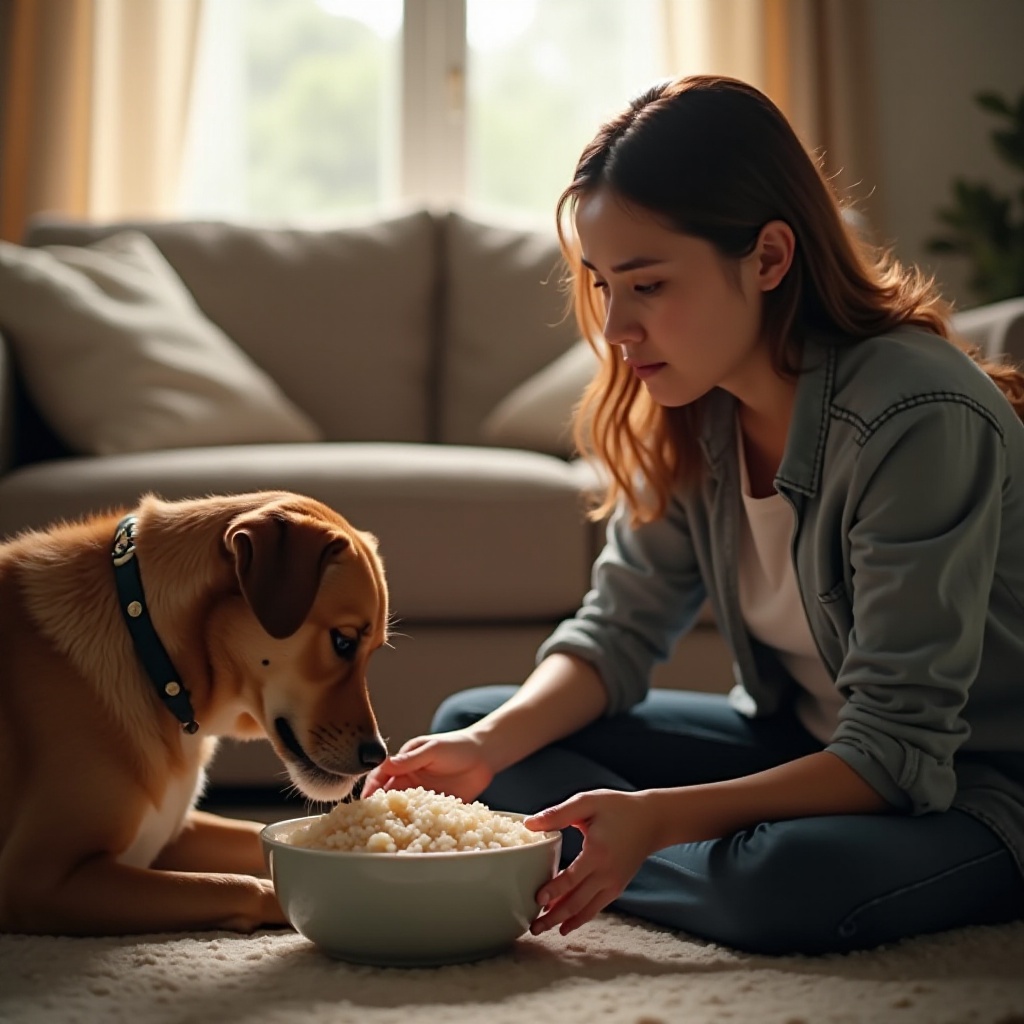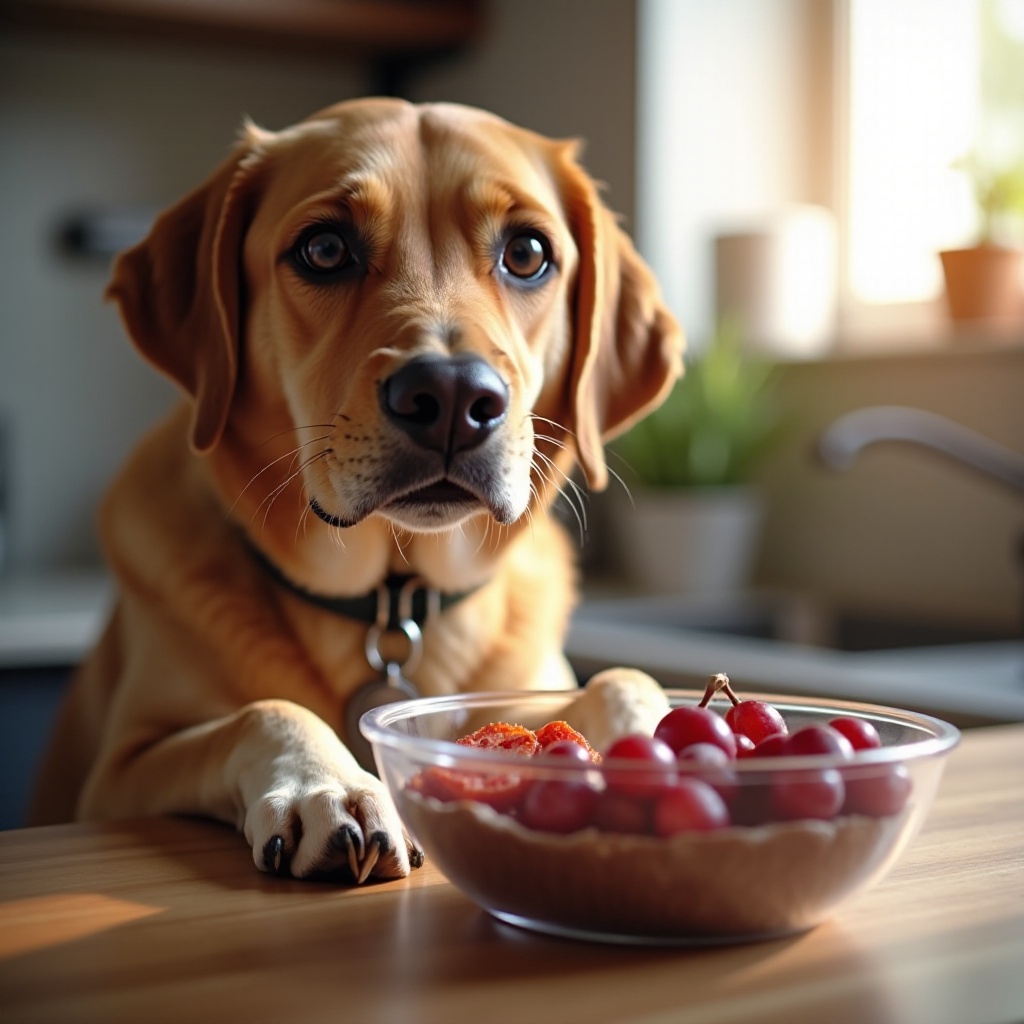Introduction
When your dog experiences diarrhea and vomiting, it can be distressing for both you and your pet. These symptoms may indicate a variety of underlying issues, ranging from dietary indiscretions to more serious health problems. Understanding what to feed your dog when they are dealing with these symptoms is crucial for their recovery and overall well-being. Proper nutrition and hydration can help alleviate symptoms and promote healing. This guide will walk you through the necessary steps, safe food options, and critical dos and don’ts when your dog is experiencing gastrointestinal distress.

Understanding the Symptoms and Causes
Dogs can develop diarrhea and vomiting due to various reasons, including sudden dietary changes, food intolerances, ingesting harmful substances, infections, or underlying medical conditions.
Symptoms:
- Frequent loose stools or diarrhea
- Vomiting or retching
- Loss of appetite
- Lethargy
- Abdominal discomfort or bloating
Common Causes:
- Dietary Indiscretion (Eating Something They Shouldn’t)
- Food Allergies or Intolerances
- Gastrointestinal Infections (Bacterial, Viral, or Parasitic)
- Toxins or Poisoning
- Chronic Conditions (e.g., Inflammatory Bowel Disease)
Understanding the root cause can help you take appropriate measures. If your dog’s symptoms persist, consult with your veterinarian to rule out serious conditions.

Initial Steps to Take
The first step when your dog has diarrhea and vomiting is to withhold food for 12-24 hours. This allows their digestive tract to rest and recover. Make sure they have access to fresh water to prevent dehydration. Monitor your dog’s condition closely during this period. If symptoms worsen or your dog shows signs of severe illness, such as prolonged vomiting, bloody diarrhea, or extreme lethargy, seek veterinary care immediately.
Safe Foods to Introduce Gradually
Once your dog has fasted and symptoms start to subside, it’s time to introduce a bland diet that is easy on their stomach.
Bland Diet Staples
- Boiled Chicken and Rice: This classic combination is easy to digest and provides essential nutrients.
- Plain Pumpkin: Contains fiber that can help firm up loose stools.
- Boiled Potatoes or Sweet Potatoes: These are gentle on the stomach and provide carbohydrates.
- Cottage Cheese or Plain Yogurt: These options are mild and beneficial for gut health.
Hydration Solutions
Keeping your dog hydrated is critical. Along with fresh water, you might consider:
– Electrolyte Solutions: Pedialyte can be used in small amounts to restore lost electrolytes.
– Broth: Plain, low-sodium chicken or beef broth can encourage your dog to drink more fluids.
Probiotics and Supplements
Probiotics can aid in restoring the natural balance of gut bacteria and improve digestion.
– Probiotic Powders or Capsules: Add to your dog’s food as directed by your vet.
– Fiber Supplements: These can help bulk up stools and improve digestion.
Foods to Avoid During Recovery
While your dog is recovering from diarrhea and vomiting, avoid feeding them:
– Fatty or Greasy Foods: These can exacerbate gastrointestinal upset.
– Dairy Products: Some dogs are lactose intolerant, which can worsen symptoms.
– Spicy or Seasoned Foods: These can irritate the digestive tract.
– Bones or Chews: These can cause further digestive issues or blockages.
Keeping these foods out of your dog’s diet can help speed up recovery and prevent a recurrence of symptoms.

Monitoring Your Dog’s Recovery
Carefully observe your dog’s symptoms as they recover. Ensure their stools return to normal and vomiting ceases. Note any signs of continued discomfort, such as lack of appetite or lethargy. Record any new symptoms and consult your vet if you have concerns. Consistent monitoring can help you adjust your approach as needed and ensure your dog’s health improves steadily.
Long-Term Nutritional Adjustments
After your dog has recovered, consider long-term nutritional adjustments to prevent future episodes:
– High-Quality Dog Food: Choose a diet formulated for sensitive stomachs or specific health needs.
– Regular Feeding Schedule: Keep a consistent feeding schedule to maintain digestive health.
– Avoid Table Scraps: Restrict giving human food to your dog.
These measures can ensure balanced nutrition and support your dog’s digestive health.
Conclusion
Feeding a dog with diarrhea and vomiting requires careful attention and a gradual approach to diet and hydration. By understanding the causes, closely monitoring symptoms, and using safe dietary options, you can help your dog recover smoothly. Consult your vet for any concerns or persistent symptoms.
Frequently Asked Questions
How long should I withhold food from my dog if they have diarrhea and vomiting?
Typically, food should be withheld for 12-24 hours. This fasting period helps the digestive system recover. Always ensure your dog has access to fresh water.
Can I give my dog over-the-counter medications for diarrhea?
It is not recommended to give your dog over-the-counter medications without veterinary advice. Always consult your vet before administering any medication.
What should I do if my dog’s symptoms do not improve after a few days?
If symptoms persist beyond a few days or worsen, consult your veterinarian. Persistent diarrhea and vomiting could indicate a more serious underlying condition that requires professional treatment.
